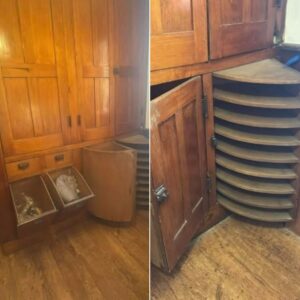Lena lost her parents in a car crash when she was three, and her aunt Diane took everything—her home, her inheritance, and her future—before abandoning her in foster care. Years later, Lena built her own cleaning business from scratch, turning her pain into purpose. One day, a new high-paying client request came in with a familiar name: Diane. Against her better judgment, Lena accepted the job, determined to face the woman who had stolen her childhood.
When Lena arrived at Diane’s luxurious home, she was met with the same arrogance and entitlement she remembered. Diane bragged about her social standing and even spoke cruelly of her “ungrateful niece.” Lena stayed professional, returning week after week, quietly observing the hollow perfection of her aunt’s life. Then, one day, she placed a framed photo of her parents and herself as a child on Diane’s table, revealing the truth: “That little girl was me.” The confrontation shattered Diane’s composure and forced her to face the consequences of her lies.
Not long after, Diane’s husband called Lena to say he had discovered Diane’s hidden fraud and was leaving her. Justice, at last, had arrived—though not by Lena’s hand. Months later, a broken Diane showed up at Lena’s office to apologize. Stripped of her wealth and pride, she confessed her jealousy and guilt, admitting she’d ruined everything she’d touched. Lena listened, torn between the scars of her past and the peace she’d earned through hard work and integrity.
In the end, Lena chose forgiveness—not for Diane’s sake, but for her own. As she looked at the old family photo on her desk, she realized that revenge might bring satisfaction, but forgiveness brought freedom. Some messes, she understood now, weren’t meant to be cleaned with anger—they were meant to be washed away with grace.





